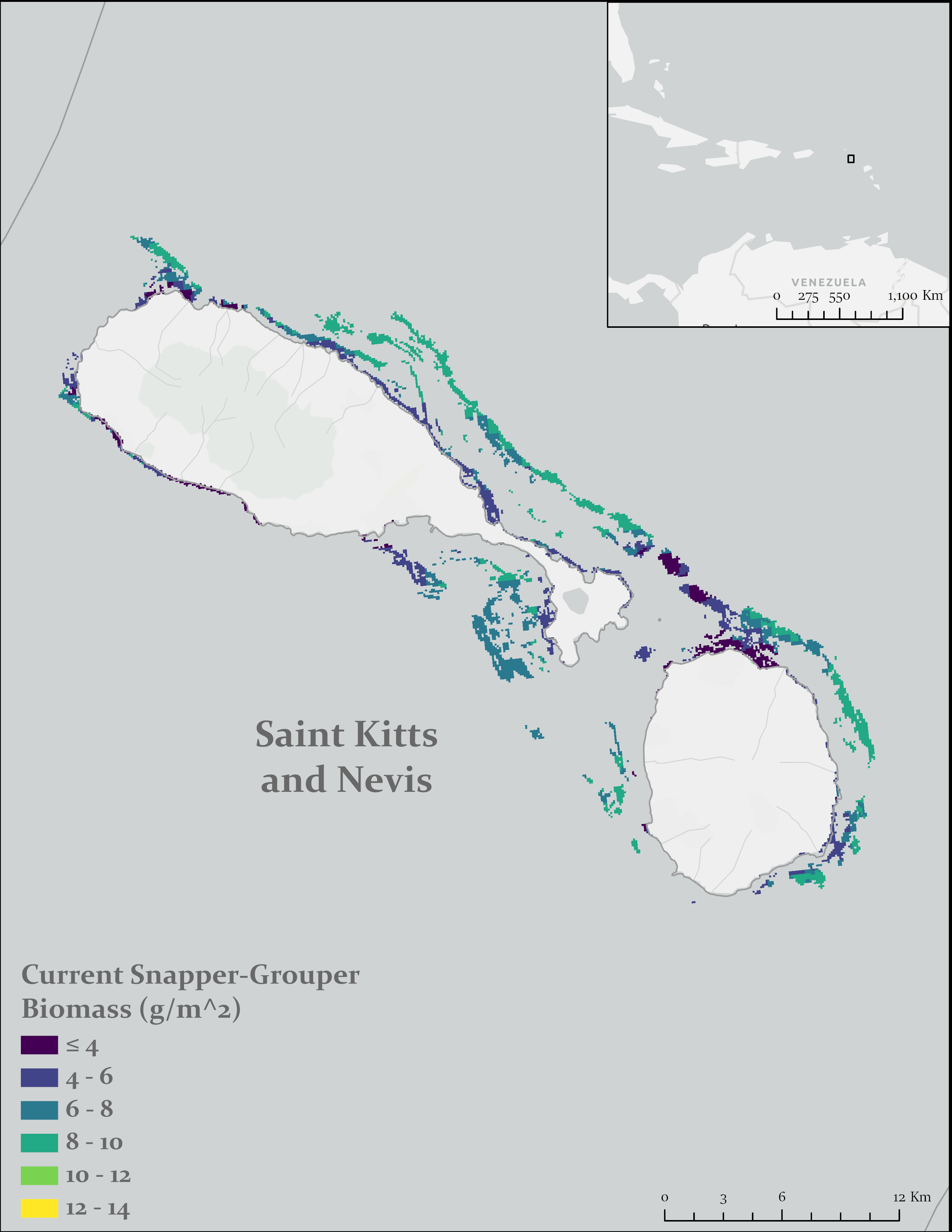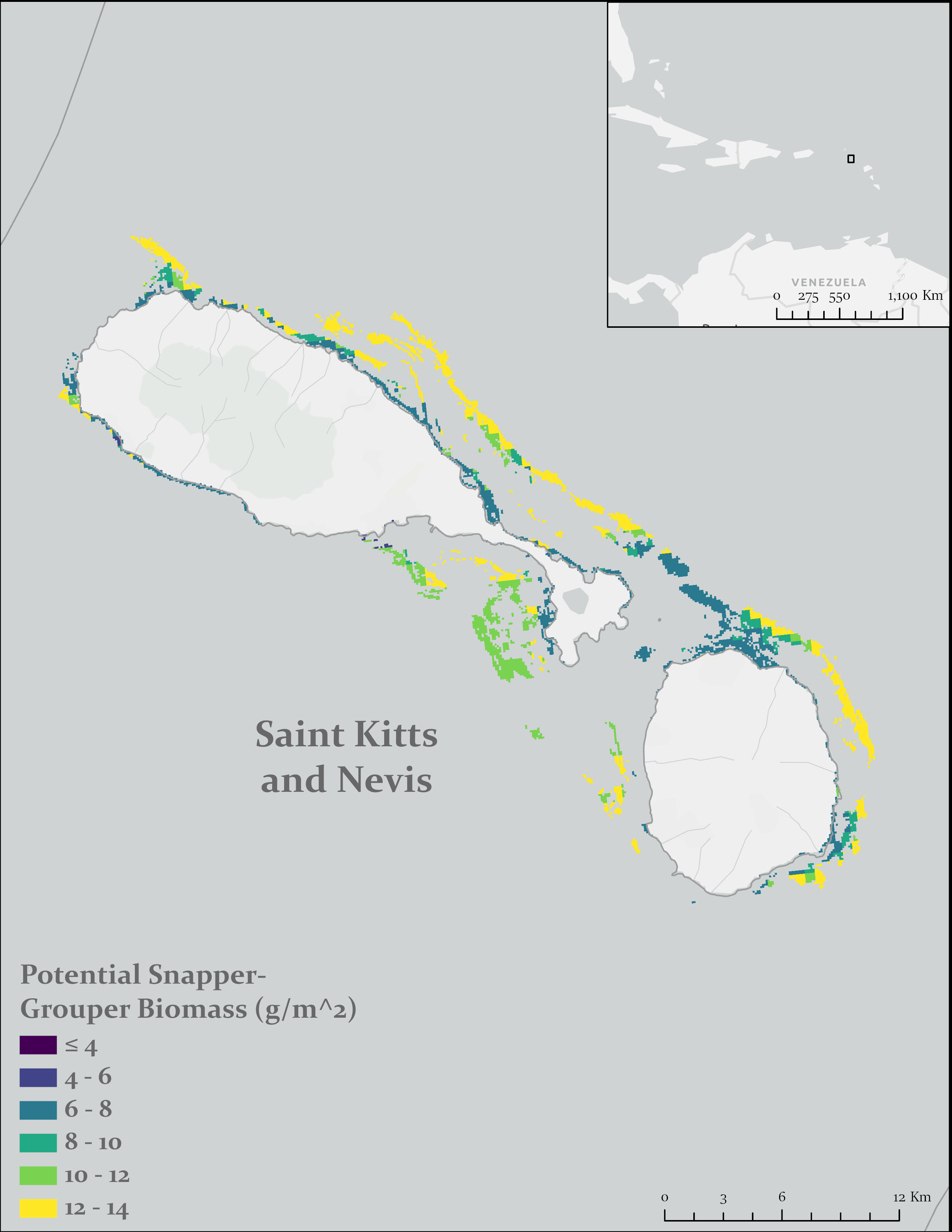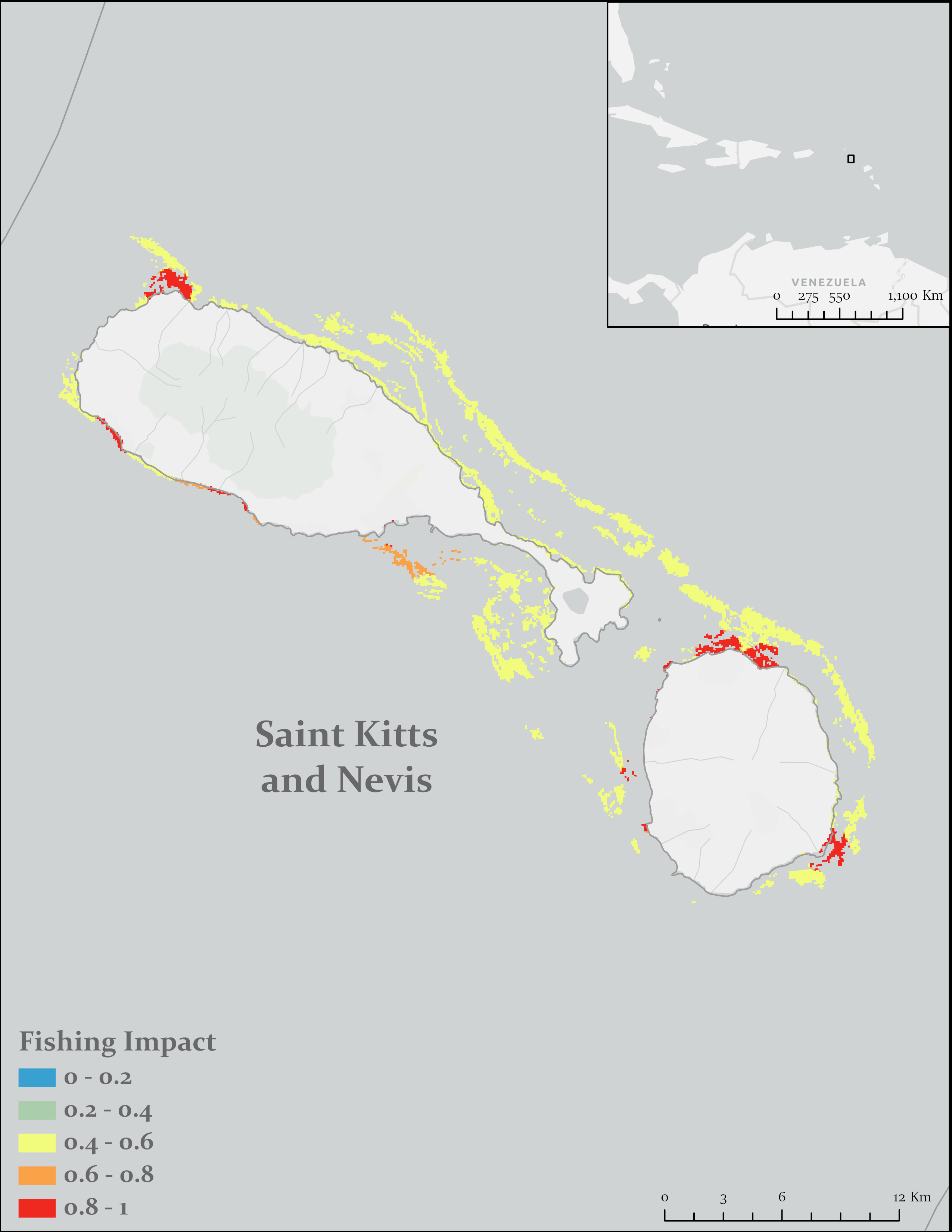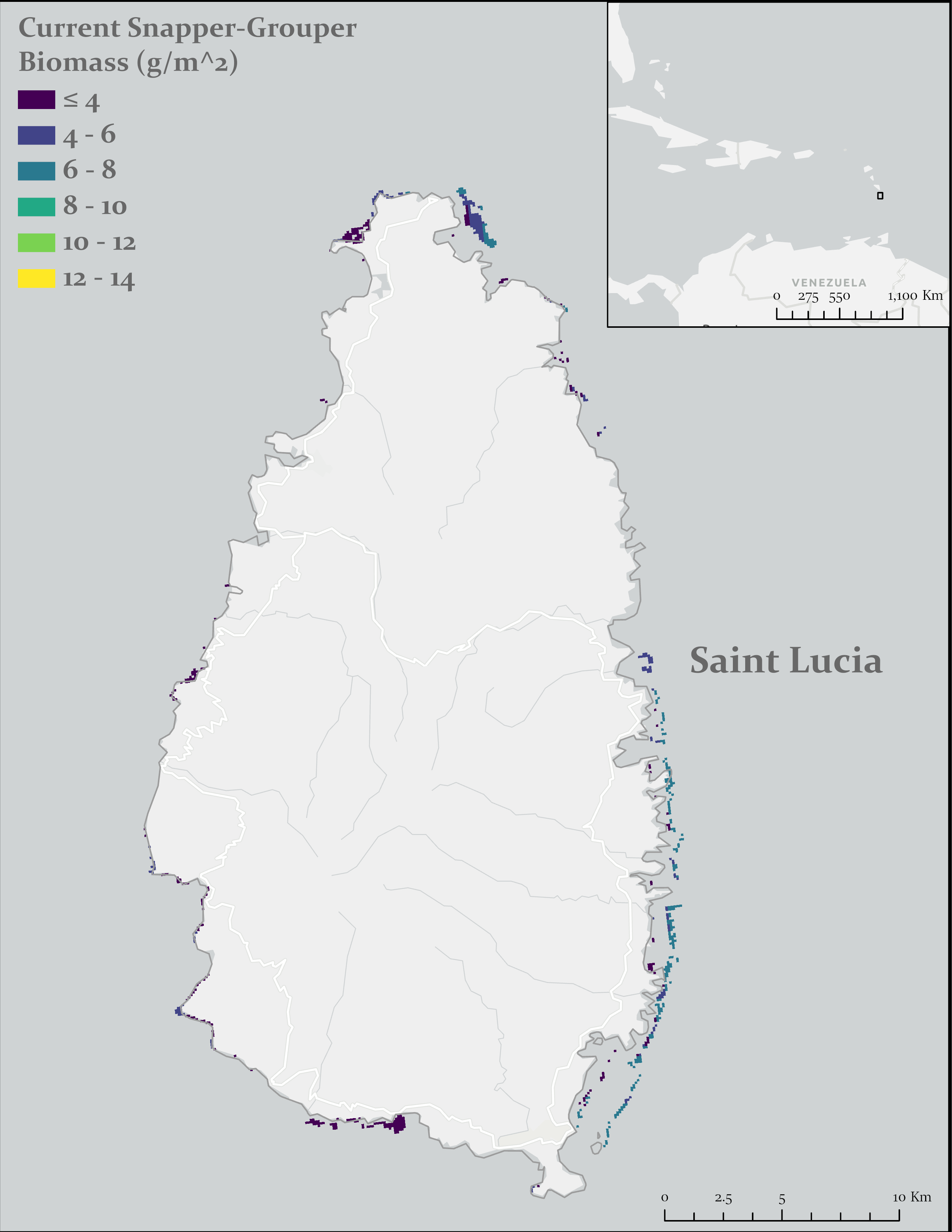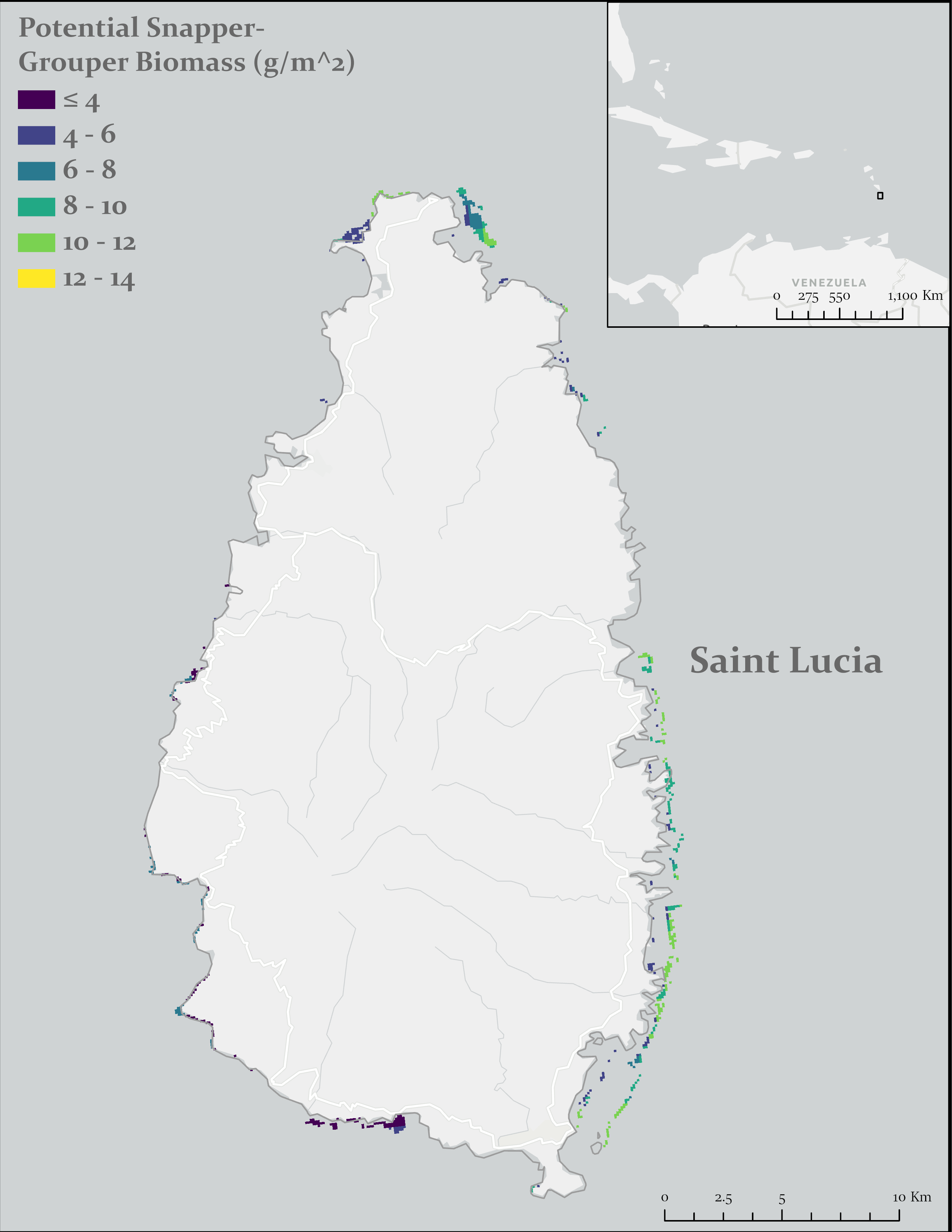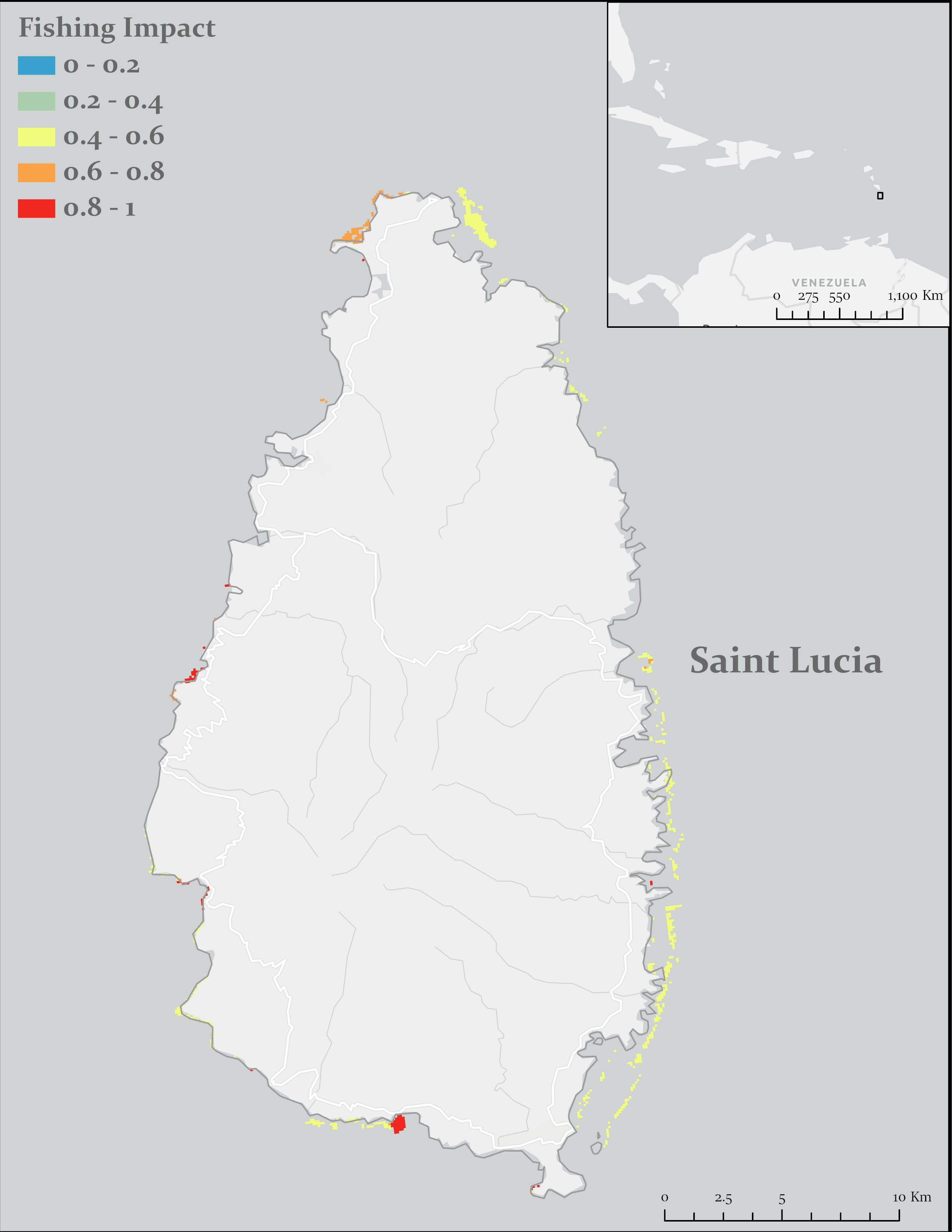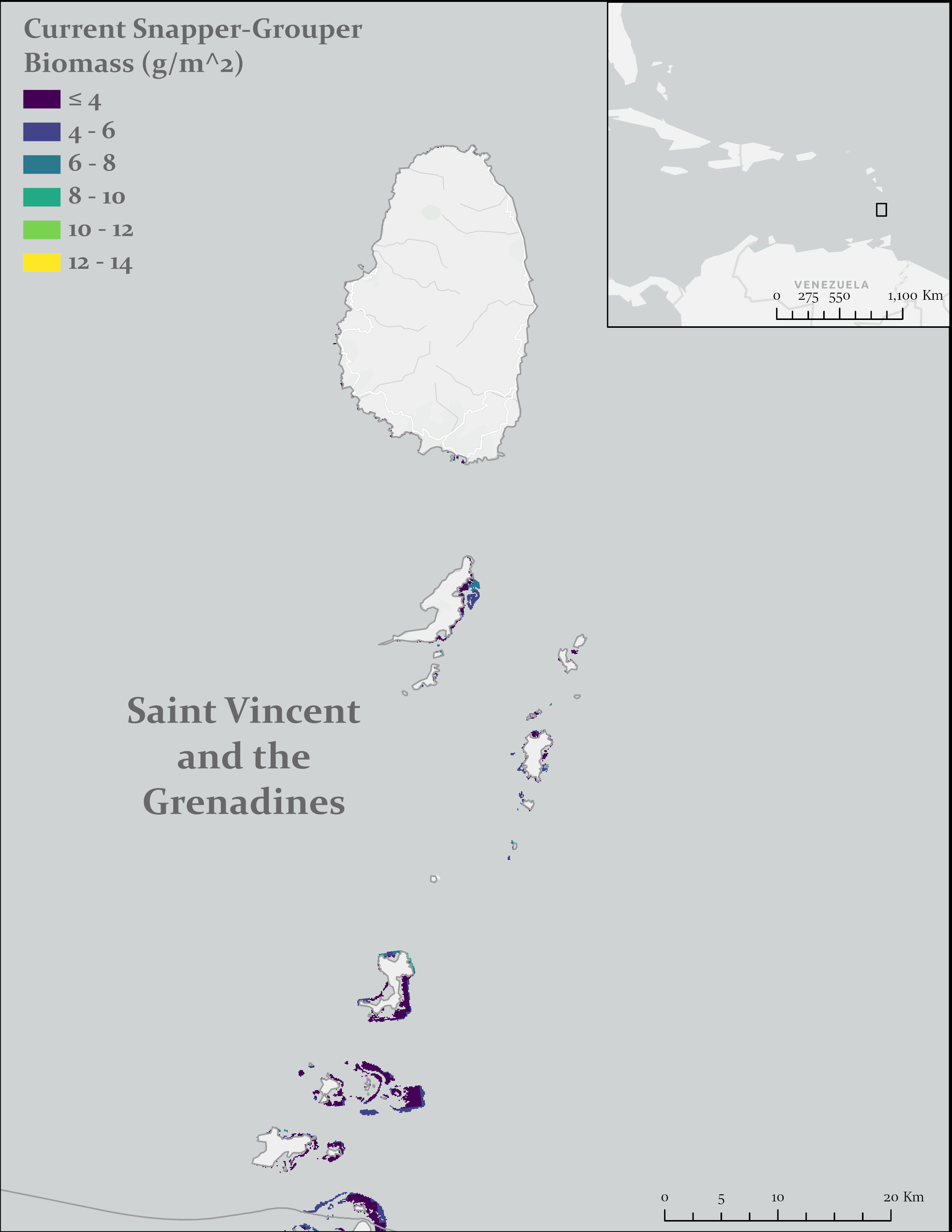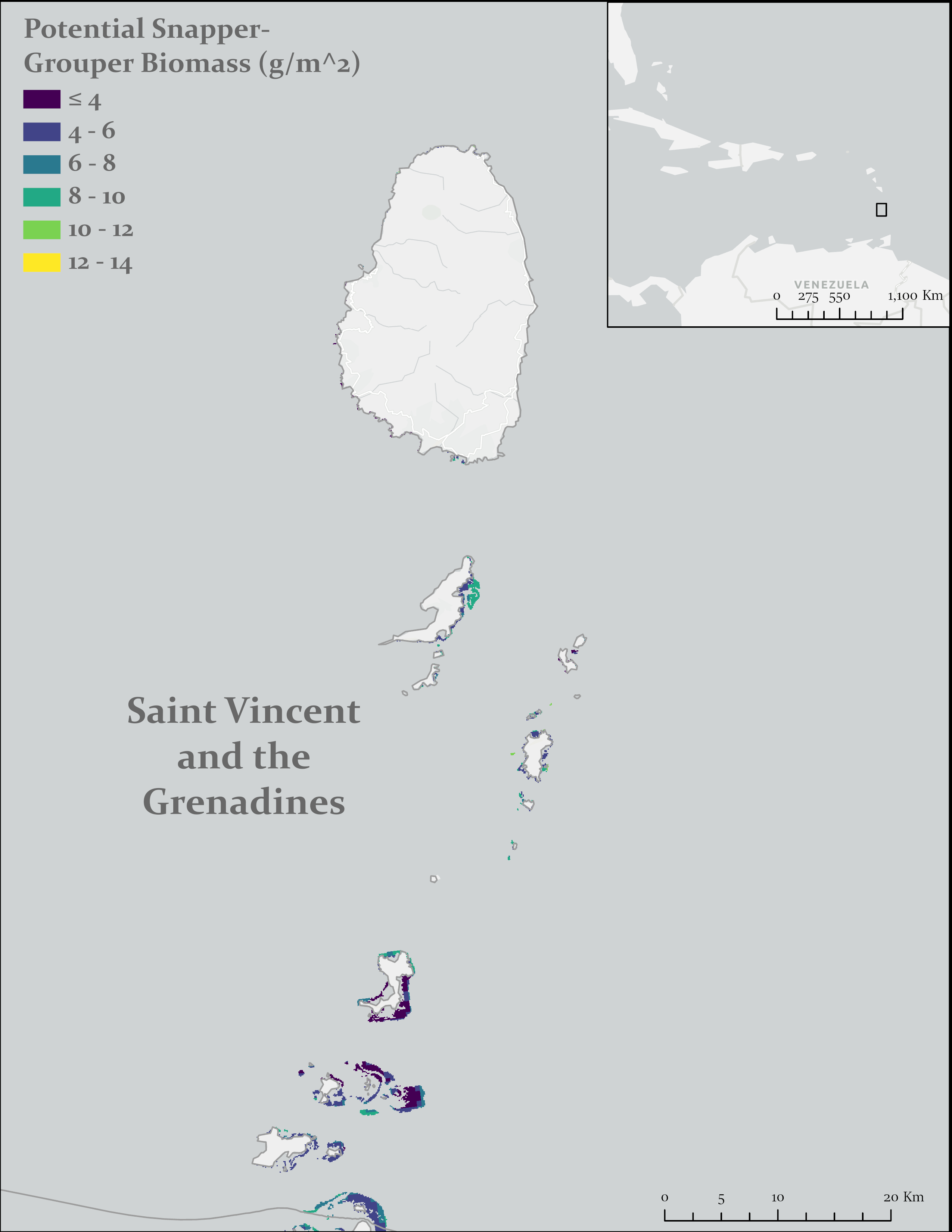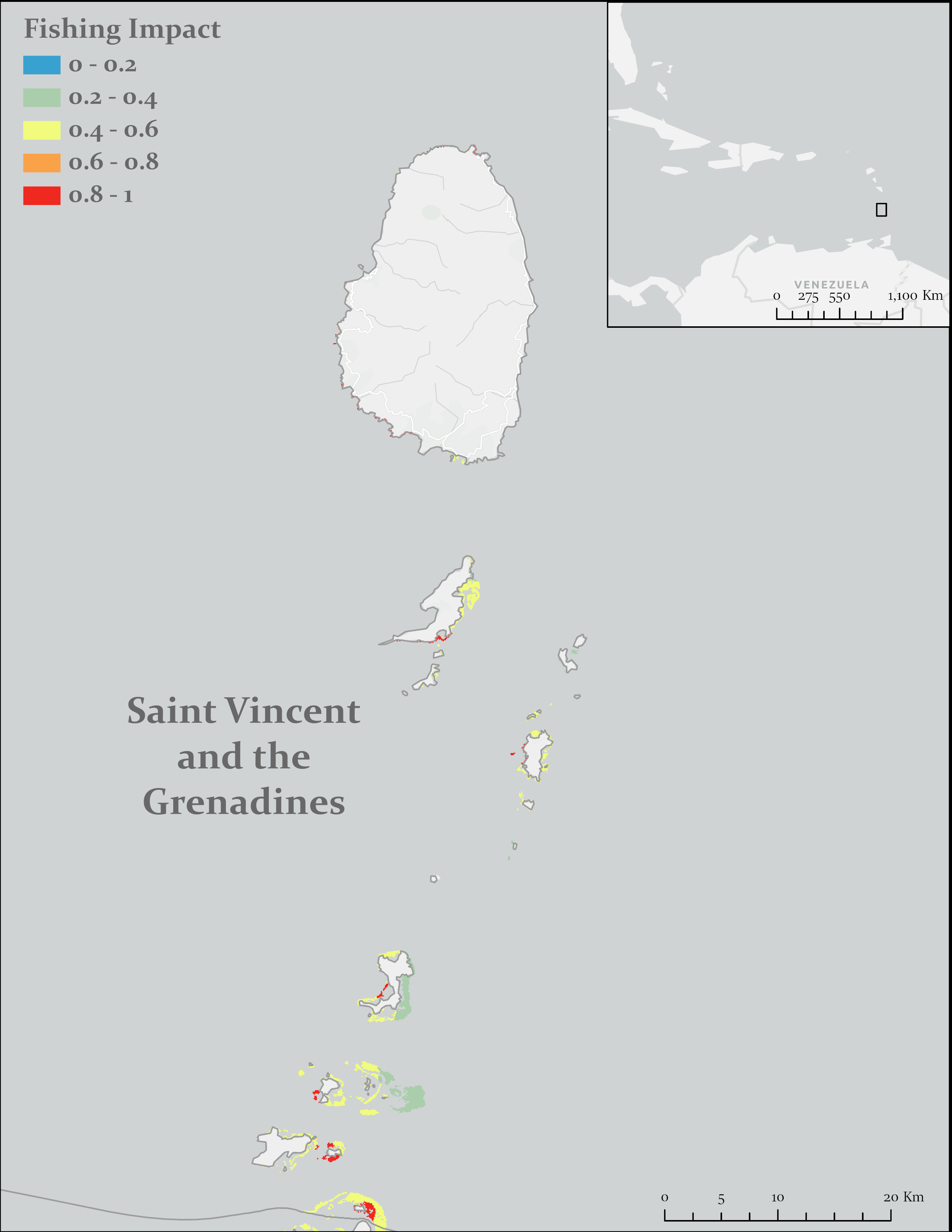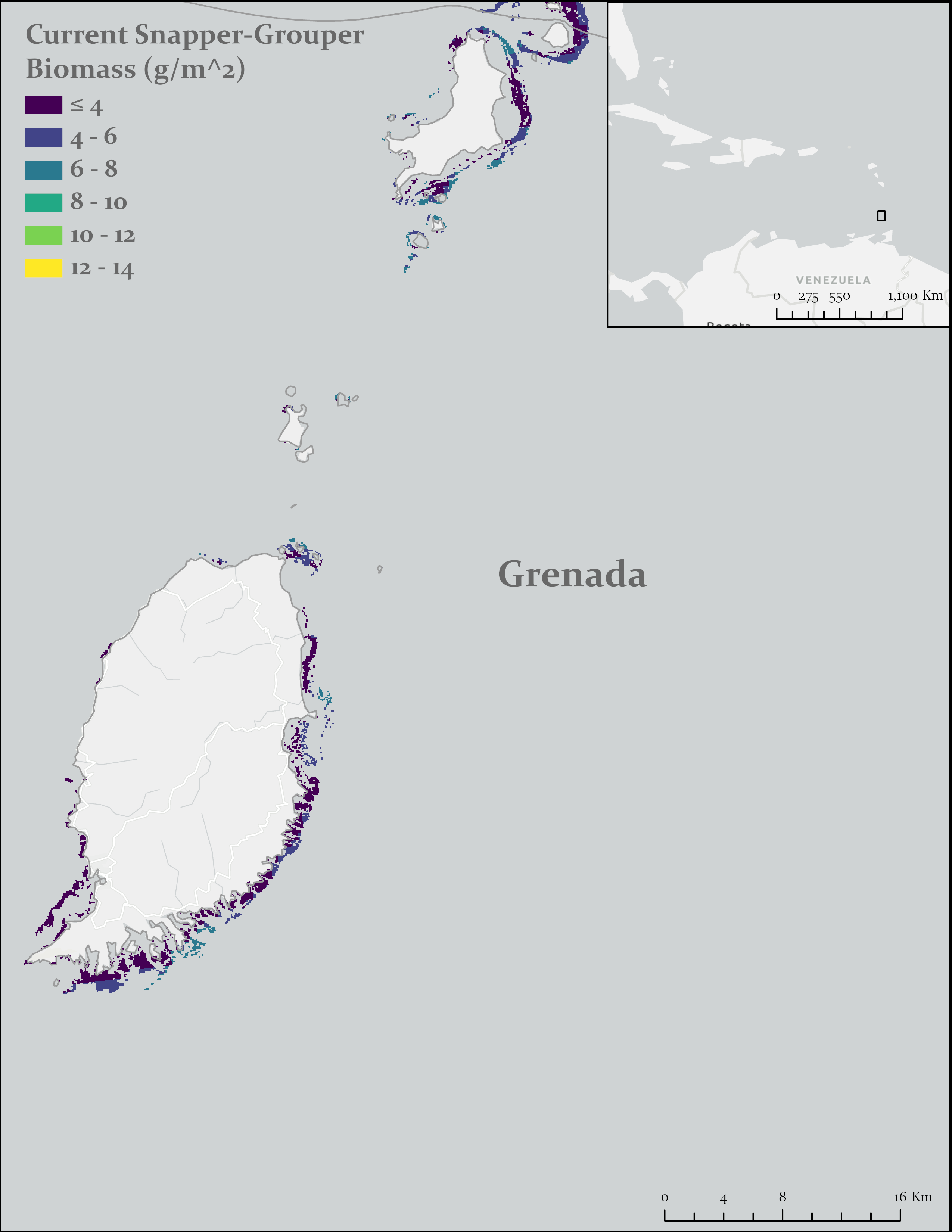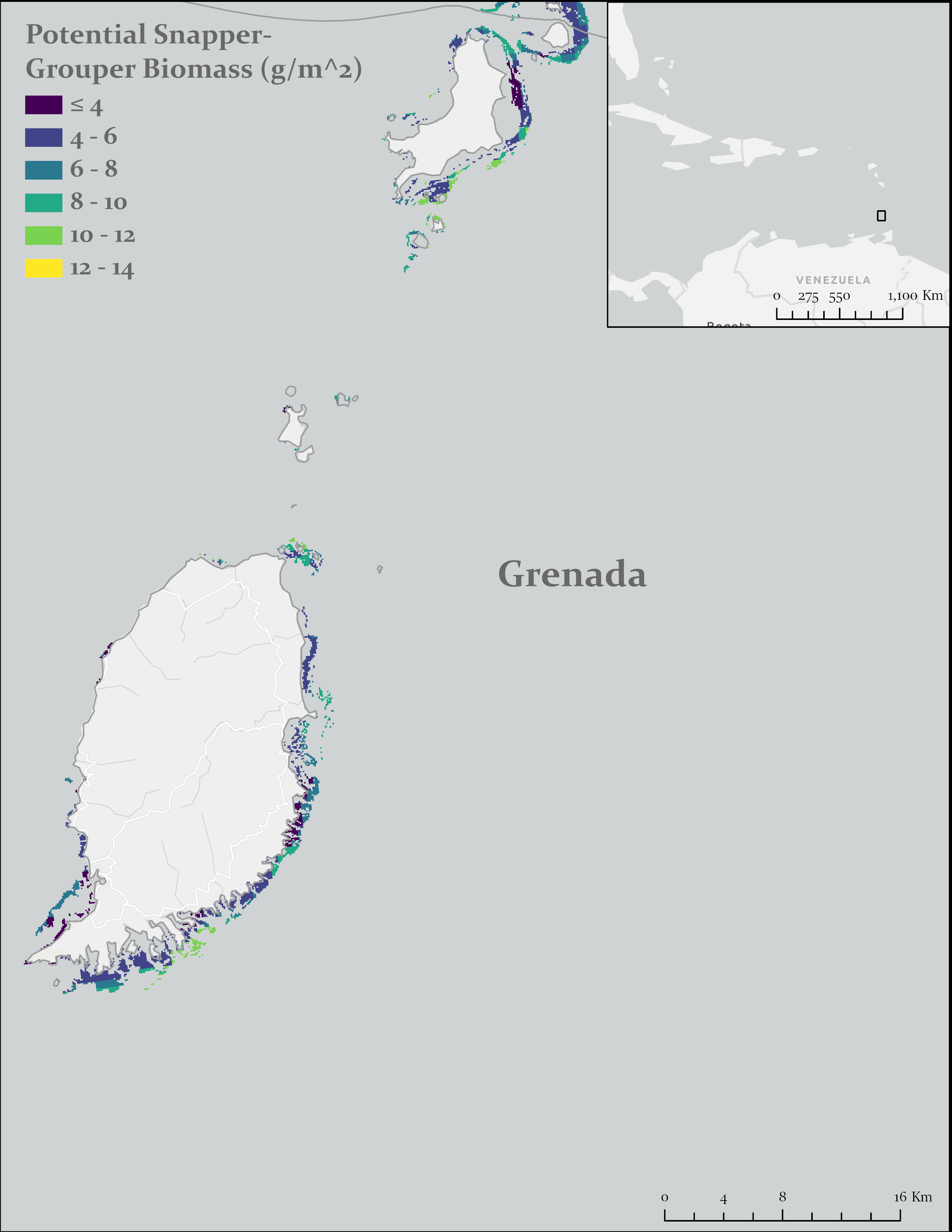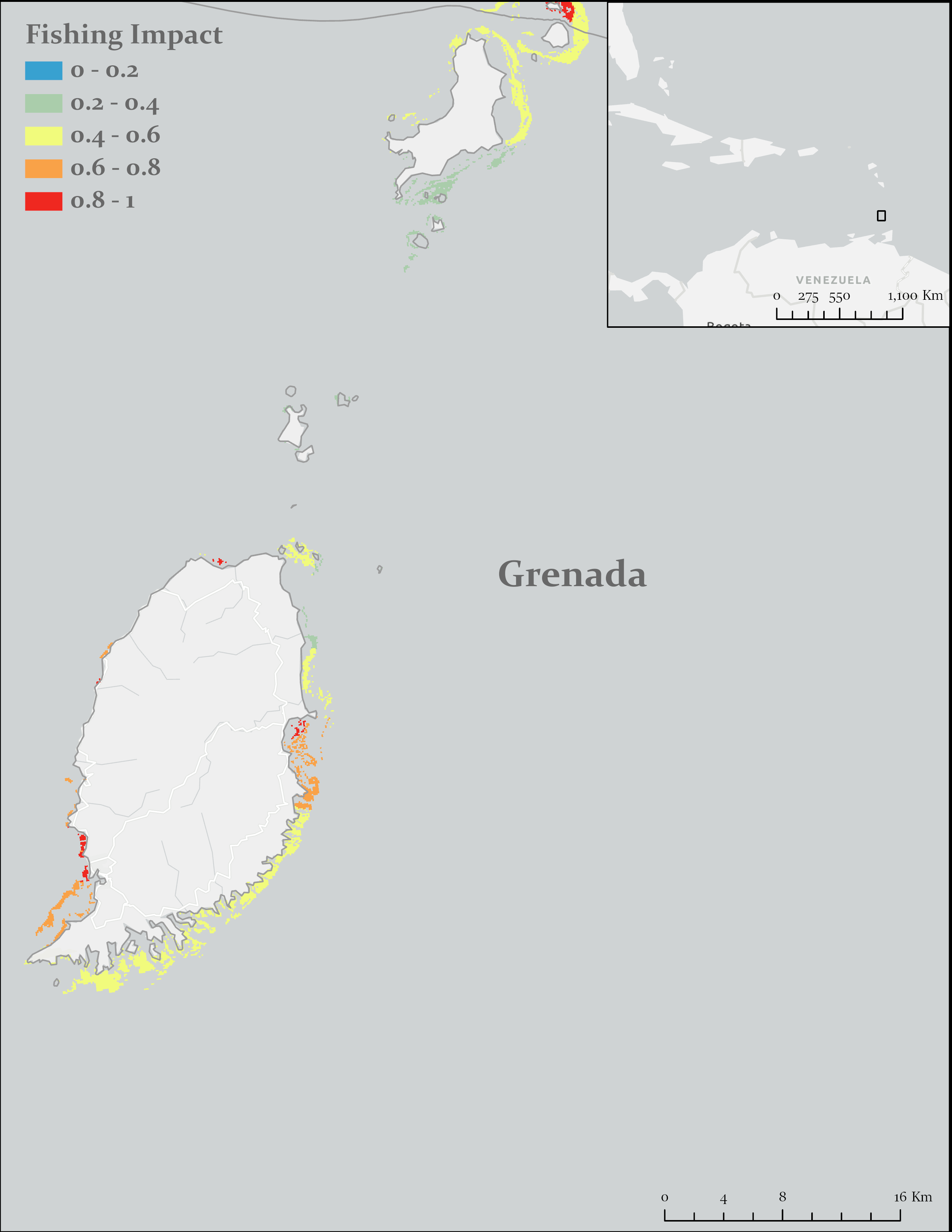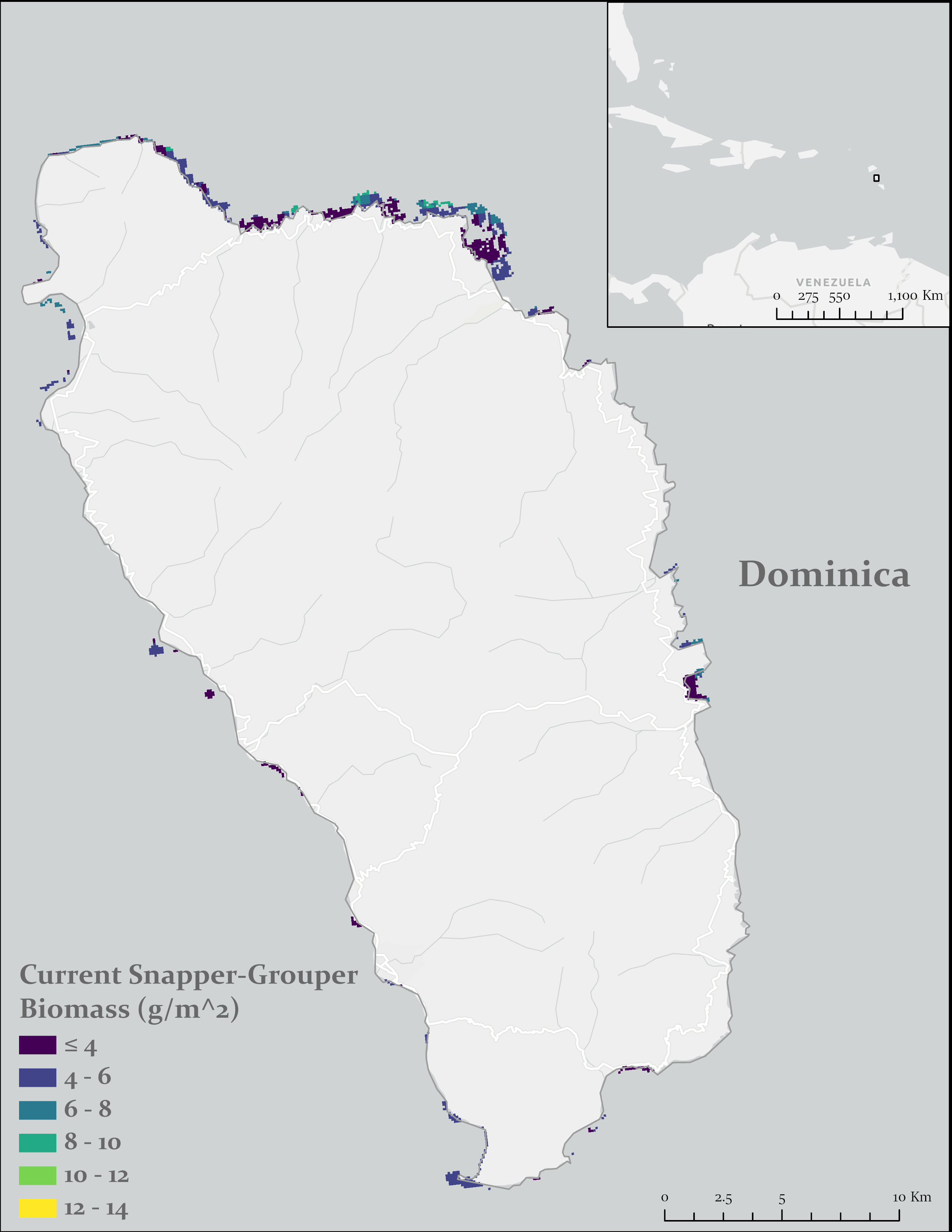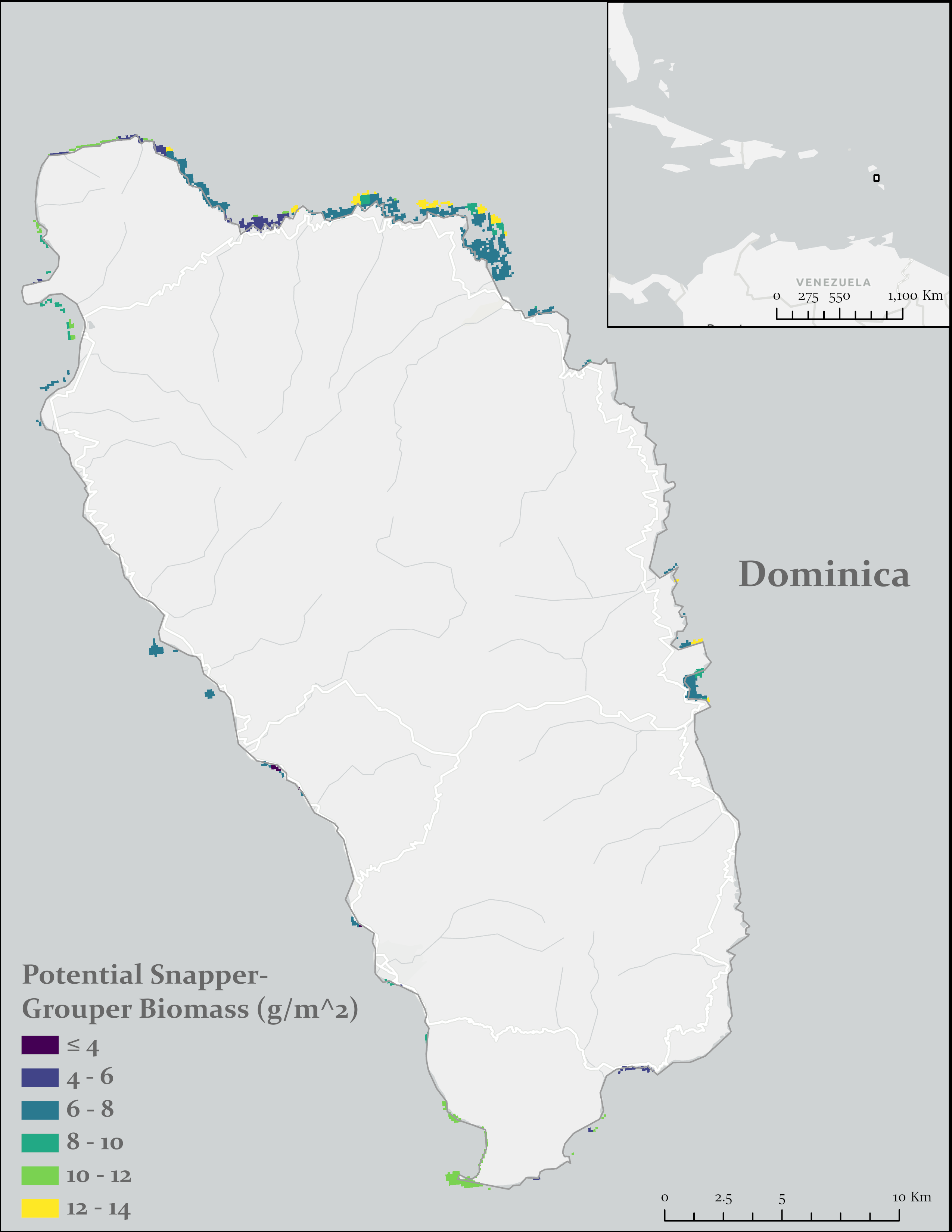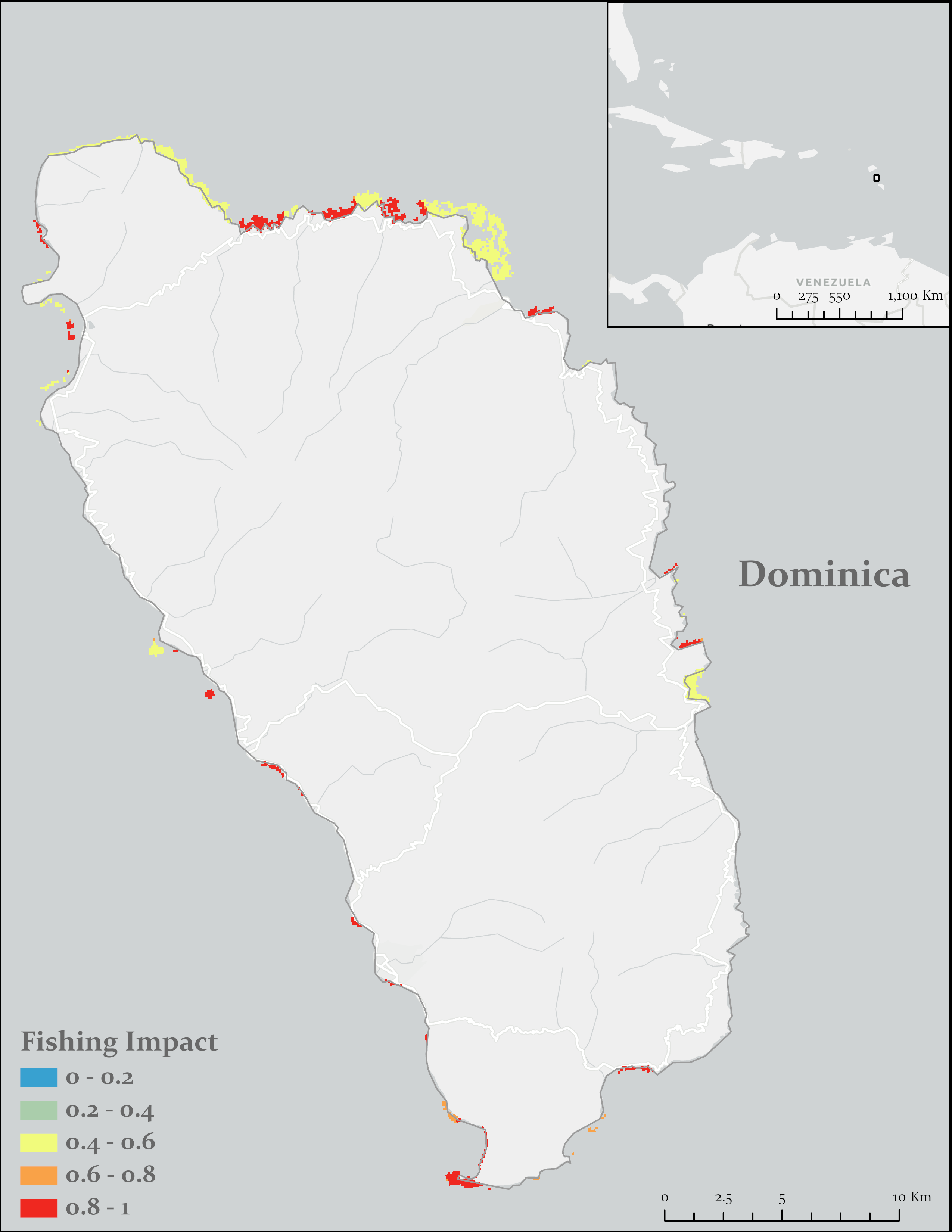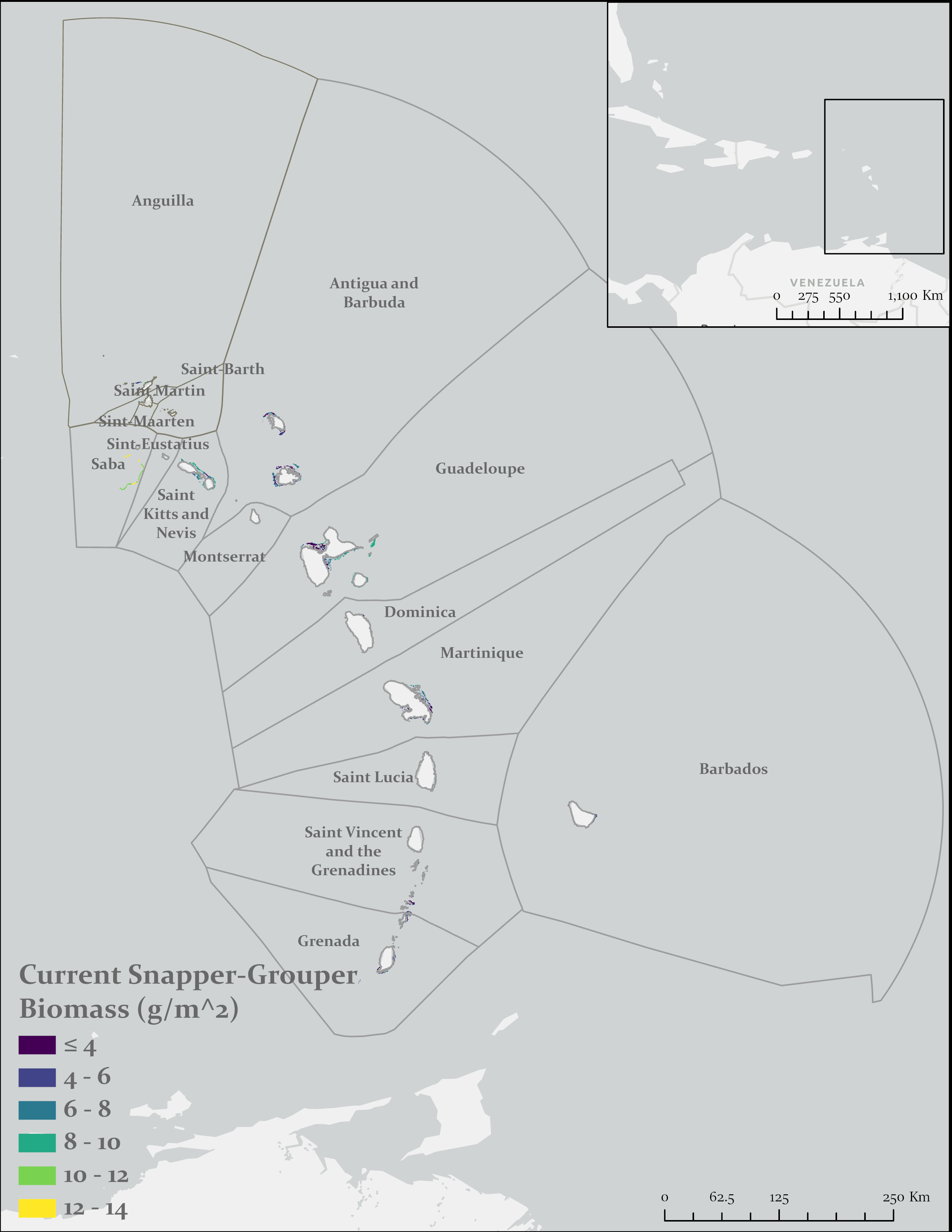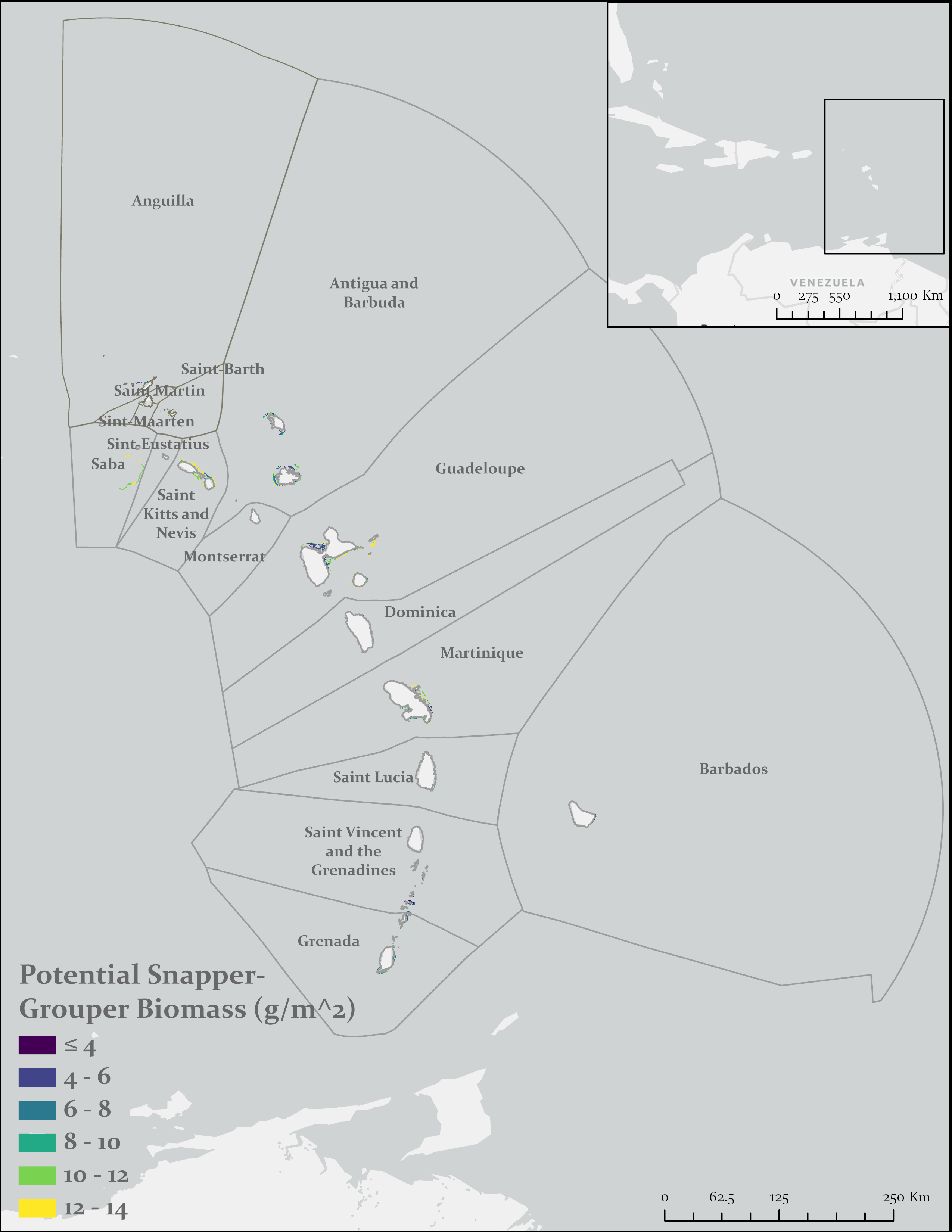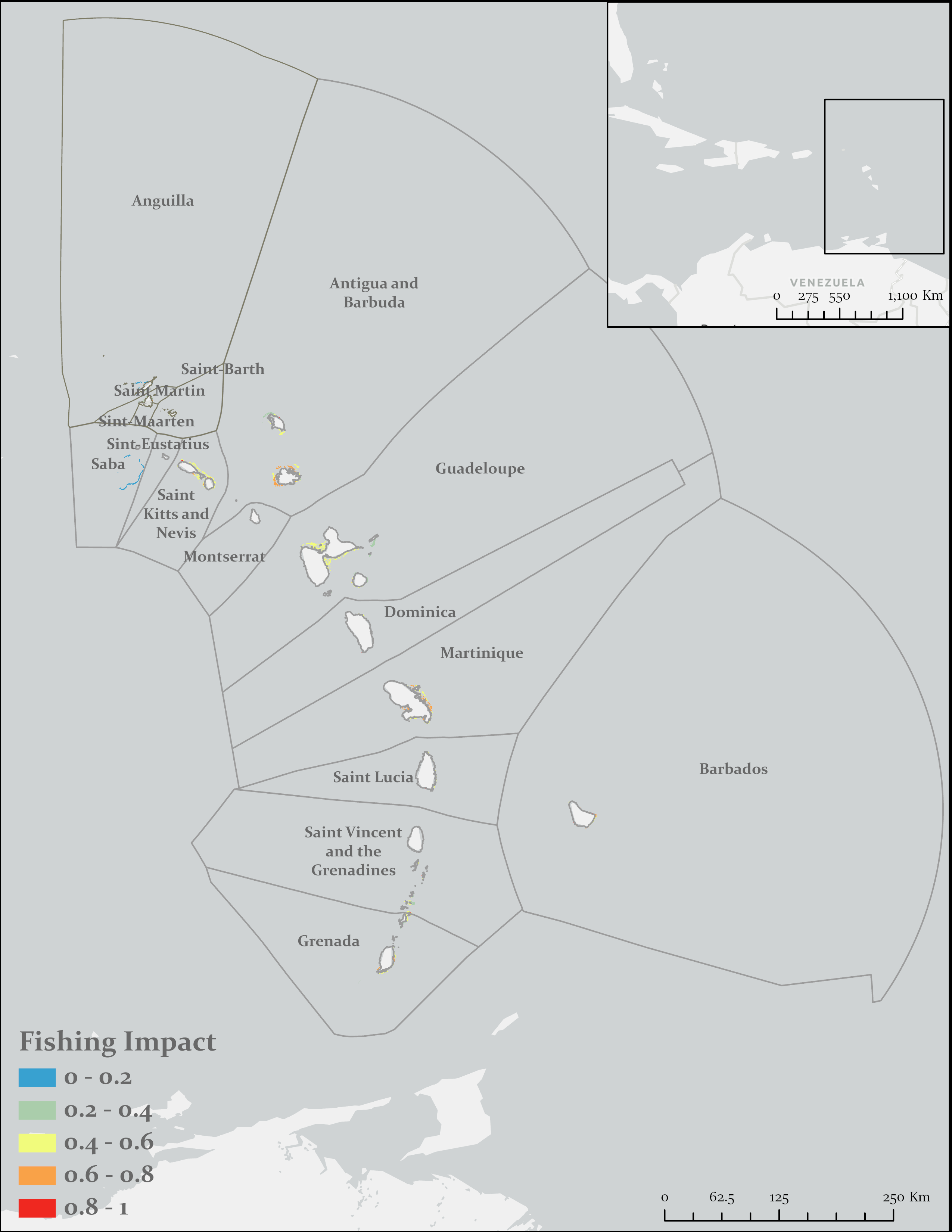Coral reefs in the Eastern Caribbean provide food and income to fishers and communities, but are threatened by a range of stressors that have impacted the health of reefs and the fish assemblages they support. To address these stressors and manage coral reef ecosystems for continued provision of ecosystem services, a local understanding of the factors that influence fish biomass, the current distribution of fish biomass, and insight into the potential outcomes of management is useful. This analysis followed similar methods employed in Micronesia, the Bahamas, and Florida, and used fish surveys, socioeconomic, and biophysical data from across the Eastern Caribbean to model and map fishing impact, model and map current fish biomass, and assess the potential benefit of conservation and management measures on reef fisheries. Although the research focused on the five CROP countries listed above, models were produced for the entire region from Anguilla (in the North) to Grenada (in the South) to account for connectivity among fish populations and to increase the number of fish surveys available to parameterize models.
The datasets produced from this model will enable planners to examine management scenarios for the effects on fish biomass, specifically fishing closures on snapper-grouper, and increase in coral cover for parrotfish.
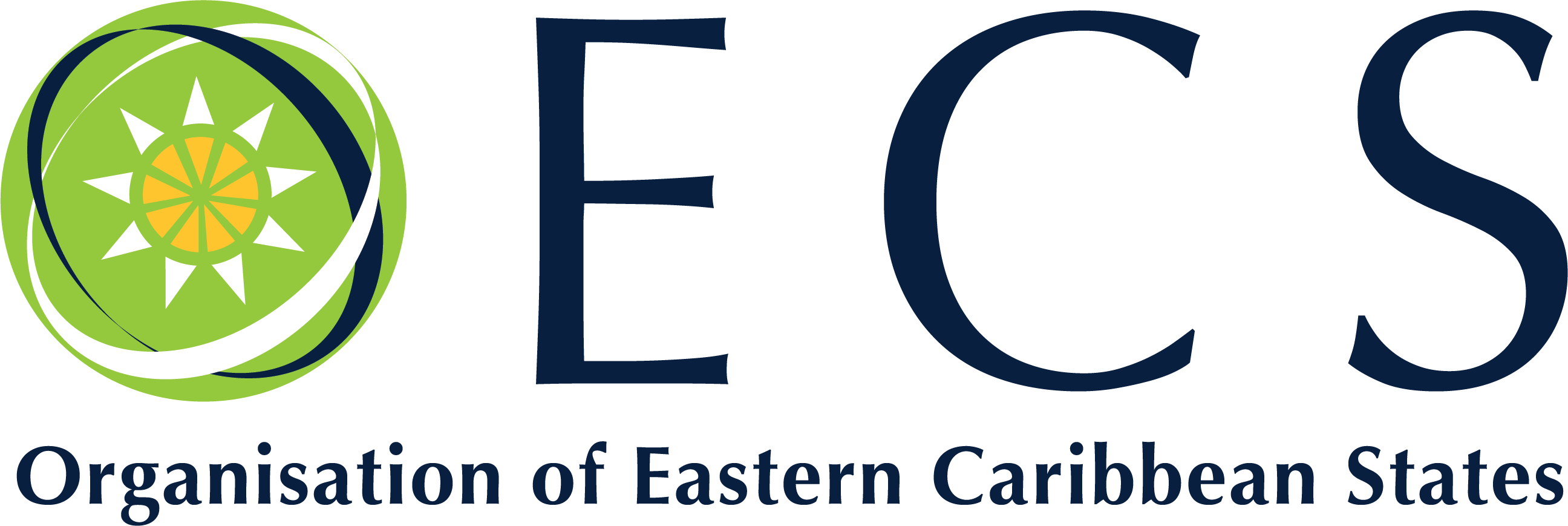



Image Credits: © Tim Calver

